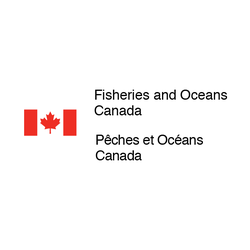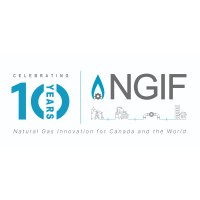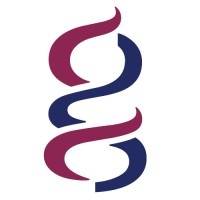
RDAR — One Health Targeted Call
At a glance
- Maximum amount : 600,000 $
- Up to 60% of project cost
- Open Date : June 12, 2024
- Closing date : July 12, 2024
- All industries
- Alberta
- Non-profit
- Public or Parapublic institution
- For-profit business
- All revenue ranges
- All organization sizes
- Rural or Northern Residents
- Higher Education
- Research
- Other Health Services
- Environment
- Animal Protection
- Economic, Social and Community Development
- Rural / Remote communities
- Business owners / entrepreneurs
- Nonprofits / charities
- Academia / students
- All structures
- Provincial
- National
- International
Overview
This grant, supported by RDAR and Genome Alberta, aims to address critical issues such as Chronic Wasting Disease, African Swine Fever, Antimicrobial Resistance, and Highly Pathogenic Avian Influenza in livestock through a One Health approach. Eligible activities include genomics-based monitoring, genetic resistance research, vaccine development, pathogen detection, and environmental surveillance, all designed to benefit Alberta's agriculture producers.
Activities funded
This grant supports projects using an omics approach to address significant health challenges affecting livestock, wildlife, and humans in Alberta. Activities should demonstrate tangible benefits to Alberta's producers by leveraging genomic-enabled technologies within a One Health framework.
- Genomics-based monitoring and surveillance for Chronic Wasting Disease (CWD).
- Development and evaluation of vaccines for CWD and Highly Pathogenic Avian Influenza (HPAI).
- Research on genetic resistance and resilience to CWD in wildlife populations.
- Population genetics studies, and pathogen detection in relation to feral pigs and African Swine Fever (ASF).
- Molecular diagnostics and genomics-informed antimicrobial treatment for tackling Antimicrobial Resistance (AMR) in livestock.
- Virus identification and cross-species transmission research for HPAI.
- Environmental surveillance and management strategies related to zoonotic disease threats.
Eligibility
Eligibility for this grant is determined by specific criteria related to the applicant's profile and their contribution to Alberta's agriculture industry.
- Applicants must be directly or indirectly involved in the service and development of the Alberta livestock or crop industry.
- Eligible applicants include marketing boards and commissions under the Marketing of Agricultural Products Act.
- Educational institutions such as universities, colleges, and technical schools are eligible.
- Government organizations and agencies can apply for this grant.
- Incorporated not-for-profit agricultural associations representing Alberta's agriculture producers are eligible.
- For-profit companies operating in Alberta and contributing to research benefiting Alberta's crop and livestock producers can apply.
- At least one team member must be located in Alberta, and the project must benefit Alberta's producers.
Who is eligible?
The grant is open to a range of applicants involved in the service and development of the Alberta livestock or crop industry, as long as they meet specific criteria. These applicants are expected to contribute to research benefiting Alberta's producers and operate within or under contract with qualifying organizations in good standing.
- Marketing boards and commissions established under the Marketing of Agriculture Products Act.
- Educational institutions, including universities, colleges, and technical schools.
- Government organizations and agencies.
- Incorporated not-for-profit agricultural associations representing Alberta's agriculture producers.
- For-profit companies operating in Alberta and contributing to research benefitting Alberta's crop and livestock producers.
Who is not eligible
This grant has specific restrictions on the activities that are not eligible for funding, particularly related to commercial activities. The aim is to ensure the research remains focused on public good and industry advancement rather than private gain.
- Commercialization of new technologies beyond pilot studies.
- Marketing activities.
- Private research and development activities.
Eligible expenses
This grant opportunity supports projects that leverage genomic-enabled technology to address priority issues through a One Health approach. Eligible projects aim to have a significant impact on Alberta producers by addressing specific challenges in livestock health and disease prevention.
- Projects on Chronic Wasting Disease, including genomics-based monitoring and surveillance, genetic resistance/resilience, vaccine development, and understanding interspecies transmission.
- Initiatives addressing issues related to feral pigs and African Swine Fever, including population genetics, reproduction control, pathogen detection and monitoring.
- Research targeting Antimicrobial Resistance through genomic surveillance, molecular diagnostics, genomics-informed antimicrobial treatments, and livestock resilience.
- Studies focused on Highly Pathogenic Avian Influenza, including virus identification and surveillance, cross-species transmission, vaccine development, and environmental management.
Eligible geographic areas
This grant is open to applicants from organizations that are directly or indirectly involved in the service and development of the Alberta livestock or crop industry. The geographical eligibility is centered around benefiting Alberta producers.
- Organizations located in Alberta, Canada.
- Applicants outside Alberta with at least one team member or project collaboration based in Alberta.
Selection criteria
The evaluation and selection of projects for this grant are based on specific criteria to ensure alignment with the grant’s objectives and priorities.
- Alignment to priorities and benefits outlined in the grant priorities.
- Projects demonstrate measurable, reportable, and verifiable impact on the target producer group.
- The uniqueness of the project relative to other projects.
- Achievability and appropriateness of project timelines.
- Adoption / commercialization potential of the project's result.
- Clarity and justification of budget items.
How to apply
Review Eligibility Requirements
Prepare and Submit Statement of Intent (SOI)
- Submit a Statement of Intent starting June 12, 2024, to Genome Alberta.
- Ensure the SOI aligns with the priority research areas and meets the requirements for SOI submission.
Invitation to Submit Full Proposal
Prepare Full Proposal
- Develop a comprehensive proposal, addressing alignment with research priorities, project uniqueness, achievable timelines, and deliverables.
- Include a detailed budget and research extension plans to ensure results reach Alberta producers.
Submit Full Proposal
Confirmation of Submission
Additional information
The grant aims to support research initiatives in Alberta targeting specific health issues related to livestock through a One Health approach. The funding is provided up to a maximum of $600,000 per project with specific eligibility criteria and reporting requirements.
- Priority will be given to projects with a clear research extension component.
- The use of RDAR's name and logo must comply with RDAR's Grant Communications Guide.
- Each project must demonstrate measurable impact on the target producer group in Alberta.
- Funding will be available to a variety of eligible applicants, including educational institutions, government organizations, and for-profit companies.
- Projects must have an omics focus addressing Chronic Wasting Disease, African Swine Fever, Antimicrobial Resistance, and Highly Pathogenic Avian Influenza in livestock.
- The project duration is capped at three years without extensions.
- 60% of the total project costs can be contributed by RDAR with a maximum contribution of $600,000 per project.
- Detailed interim and final reports along with financial statements must be submitted online through ARGO.
- The project should include an Albertan as an end-user, lead, co-lead, or key co-applicant.
- Ineligible activities include commercialization beyond pilot studies, marketing activities, and private R&D actions.
- The remaining 40% of the funding must come from other sources, either in cash or in-kind.
Contacts
Frequently Asked Questions about the RDAR — One Health Targeted Call Program
What is the RDAR — One Health Targeted Call?
How much funding can be received?
What expenses are eligible under RDAR — One Health Targeted Call?
What is the deadline to apply?
Is the RDAR — One Health Targeted Call a grant, loan, or tax credit?
Who are the financial supporters of the RDAR — One Health Targeted Call?
Who is eligible for the RDAR — One Health Targeted Call program?
Who can I contact for more information about the RDAR — One Health Targeted Call?
Where is the RDAR — One Health Targeted Call available?
More programs like this

Aquatic Habitat Restoration Fund (AHRF)
Fisheries and Oceans Canada (DFO)
Capital Retrofits
Government of Alberta
Energy Management Information Systems (EMIS)
Government of Alberta
Alberta Carbon Capture Incentive Program (ACCIP)
Government of Alberta
Alberta Innovates — Agriculture & Environment (AE) Program
Alberta Innovates
Regional Defence Investment Initiative (RDII) in the Prairie provinces
Prairies Economic Development Canada (PrairiesCan)
Regional Tariff Response Initiative (RTRI) — Prairie Provinces
Prairies Economic Development Canada (PrairiesCan)
METHANE REDUCTION DEMONSTRATION PROGRAM
Natural Gas Innovation Fund (NGIF)
Genomics Data Connect: Accelerating Agriculture Innovation
Genome Alberta